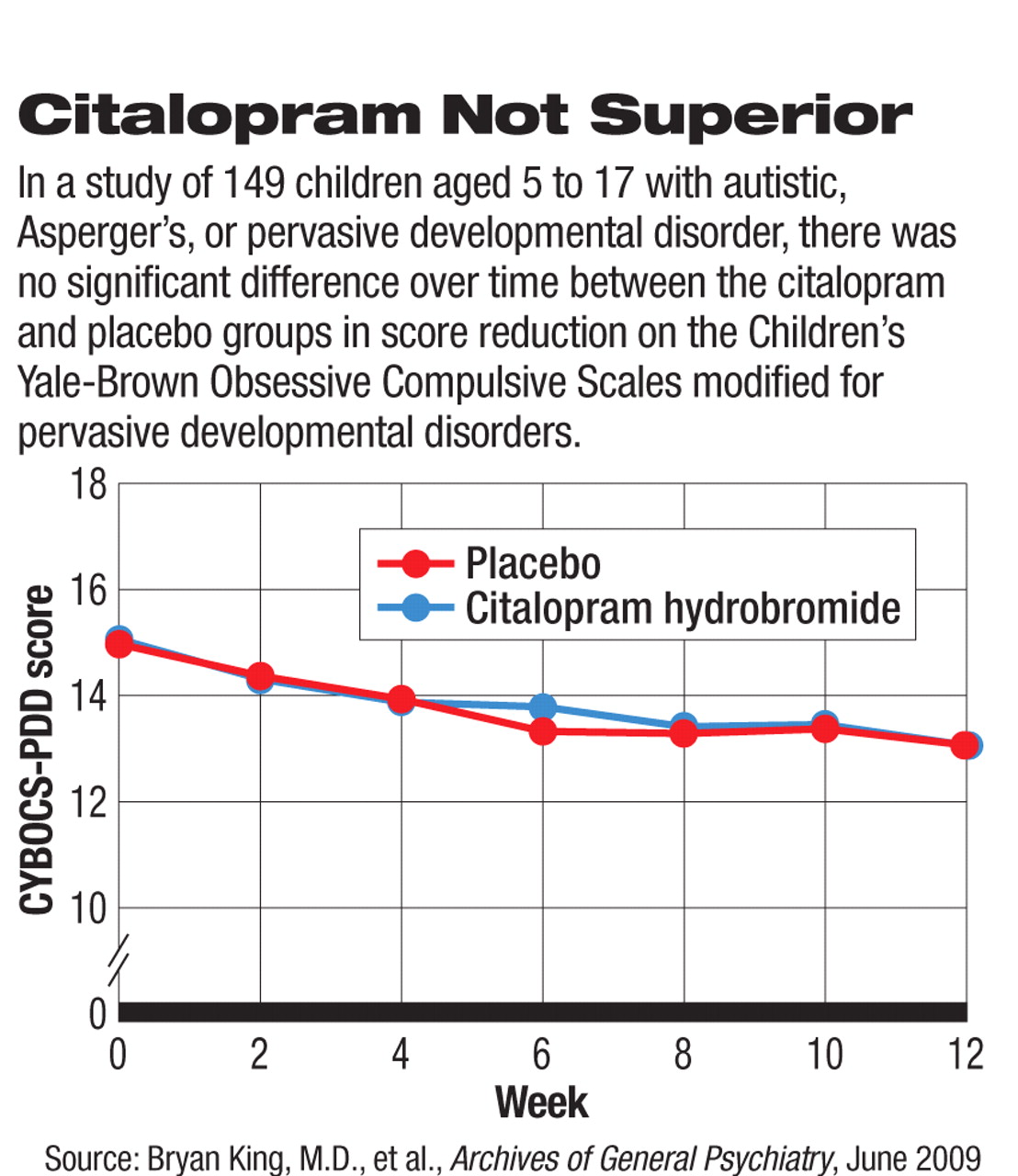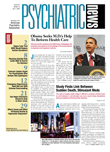The selective serotonin reuptake inhibitor (SSRI) antidepressant citalopram failed to subdue repetitive behaviors in autistic children, a study reported in the June Archives of General Psychiatry found.
The study, whose lead investigator was Bryan King, M.D., director of child-adolescent psychiatry at the University of Washington and Seattle Children's Hospital, was conducted at six academic medical centers and funded by the National Institutes of Health. It included 149 children aged 5 to 17 who met DSM-IV-TR criteria for autistic disorder, Asperger's disorder, or pervasive developmental disorder not otherwise specified.
Subjects had an illness-severity rating of at least moderate on the Clinical Global Impression–Severity of Illness Scale and a score of at least moderate on compulsive behaviors measured with the Children's Yale-Brown Obsessive-Compulsive Scales modified for pervasive developmental disorders.
Subjects were randomized to receive either citalopram or a placebo for 12 weeks. One reason citalopram was selected over other SSRIs is because it was available in a liquid formulation, allowing for small dosage adjustments. The average maximum dosage of citalopram was 16.5 mg a day by mouth (maximum, 20 mg a day).
At the end of the 12 weeks, the researchers compared results for the two groups. Positive response was defined by a score of much improved or very much improved on the Clinical Global Impressions–Improvement Subscale. An important secondary outcome was the score on the Children's Yale-Brown Obsessive-Compulsive Scales modified for pervasive developmental disorders. Adverse events were noted using the Safety Monitoring Uniform Report Form.
There was no significant difference in outcome between the two groups. However, the citalopram group was significantly more likely than the placebo group to have undesirable effects, especially hyperactivity, impulsiveness, and sleep problems.
“The medication does not appear to be useful for repetitive behaviors in children with autism and related conditions,” Fred Volkmar, M.D., director of the Yale Child Study Center, wrote in an accompanying editorial.
Nonetheless, just because citalopram does not appear to be capable of countering repetitive behaviors in autistic youngsters, that does not necessarily mean that no SSRI antidepressant can do so, King told Psychiatric News. Volkmar said that he agreed on this point since previous double-blind, placebo-controlled studies have shown that SSRIs can counter repetitive behaviors in autistic adults and since “there can be differences between SSRIs.” King noted, however, that “we can't assume that other SSRIs prescribed for this indication in this population would be any better than a placebo if put to a similar test.”
Even though results from this trial were negative, it is a good example of the new, large, well-conducted studies that are being conducted to find effective treatments for autism, Volkmar pointed out in his editorial. The reason such studies are now being conducted, he explained, is because more federal funding has become available for them during the past decade or so (Psychiatric News, January 4, 2008) due largely to the parents of autistic children pressuring legislators for it.
Another example of the type of studies that are being conducted in this arena, he noted, is one that showed that the antipsychotic medication risperidone can subdue irritability in autistic children (Psychiatric News, July 15, 2005). This finding, he added, “resulted in the approval by the U.S. Food and Drug Administration of the use of risperidone for children with autism that is accompanied by tantrums, aggression, and self-injury.”

